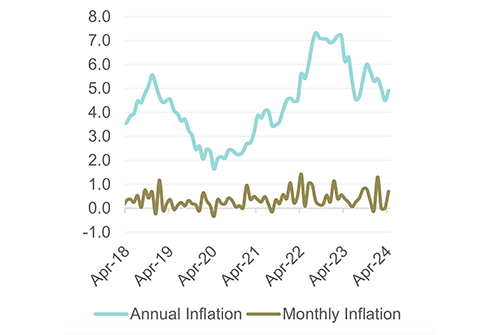An expected increase in the repo rate by the Bank of Namibia (BoN) will weigh heavily on indebted households who already battle with higher living costs, as real disposable incomes deteriorate with rising inflation. This is as the South African Reserve Bank recently hiked its repo rate by 75 basis points (bps) in July, with further tightening expected.
Local stock brokerage, Simonis Storm Securities (SSS), expects the Namibian central bank to follow with a similar rate hike at its next meeting in August.
Meanwhile, the latest BoN figures indicate that credit extended to the private sector increased by 3.4% year-on-year (y/y) in June 2022 compared to 4.5% y/y in May 2022. Net household debt increased by 2% y/y in June 2022, compared to 2.4% y/y in May 2022, whereas net corporate debt increased by 5.3% y/y in June 2022, compared to 7.4% y/y in May 2022.
According to SSS, the main contributors to household credit growth were other loans and advances, which increased by 5.8% y/y, and mortgage loans increased by 1.5% y/y. Corporate debt was driven higher mainly by instalment and leasing credit, up by 18.1% y/y, other loans and advances, up by 14.1% y/y, and mortgage loans that increased by 4.3% y/y.
Furthermore, businesses in the energy, commercial and mining sectors were the main contributors to corporate credit growth, according to BoN. Also, demand for overdrafts from both households and corporates are on a declining trend since the start of the year.
SSS also pointed out that for the year to date, credit growth is trending above levels seen in 2021. Together with an 8.1% y/y increase in net investments recorded throughout the economy during the first quarter of 2022, SSS expects growth in the financial services sector to support Namibia’s recovery from the lockdown-induced recession.
“For the most part of the last 16 years, growth in the private sector debt (households and corporates combined) has exceeded economic growth rates. This implies that most of the private sector debt went towards consumption spending and not toward investments, which enhance long run productivity in the economy. While consumption spending fuelled growth in the short run, long run economic sluggishness is likely to persist as the economy’s productive capacity is constrained,” SSS reported.


